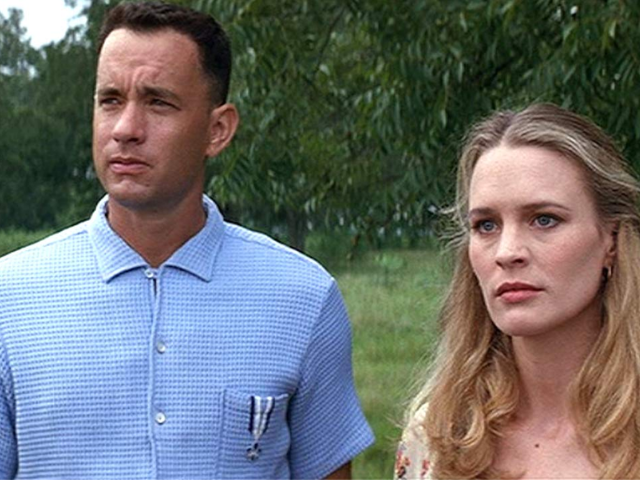Robin Wright Defends ‘Forrest Gump’ Character Jenny Against Anti-Feminist Criticism
Robin Wright addresses criticism of Jenny from ‘Forrest Gump,’ defending her character’s choices and backstory.

Robin Wright has responded to longstanding criticisms of her character Jenny in the classic film Forrest Gump, rejecting the notion that Jenny represents an "anti-feminist" archetype.
In an interview with The New York Times alongside her Here co-star Tom Hanks, Wright discussed the complex nature of Jenny, a character whose tumultuous life journey, influenced by childhood abuse, led to struggles with substance use, promiscuity, and ultimately, an untimely death from an illness hinted to be AIDS. Despite these challenges, Wright believes Jenny’s story is misunderstood by critics who view her fate as a “punishment.”
“No! It’s not about that,” Wright responded when asked about Jenny’s character being perceived as an antagonist to Forrest. “People have said she’s a Voldemort to Forrest. I wouldn’t choose that as a reference, but she was kind of selfish. I don’t think it’s a punishment that she gets AIDS. She was so promiscuous — that was the selfishness that she did to Forrest.”
Wright further explained Jenny’s journey as one deeply affected by her traumatic upbringing. Despite her flaws, Forrest’s unwavering love ultimately brings a redemptive quality to her story. “He was in love with her from Day 1. And she was just flighty and running and doing coke… And then she gets sick and says, ‘This is your child. But I’m dying.’ And he still takes her: ‘I’ll take care of you at Mama’s house.’ It’s the sweetest love story.”
Meanwhile, Hanks, who played Forrest, expressed relief that a sequel to Forrest Gump was never pursued, saying, “Thank God we never bothered trying to make another one.” Wright and Hanks have since reunited with director Robert Zemeckis in the film Here, a time-spanning drama where they play a married couple, brought to life with AI de-aging technology. “We just picked up right where we left off,” Hanks remarked, describing their on-screen reunion.



















COMMENTS
Comments are moderated and generally will be posted if they are on-topic and not abusive.
For more information, please see our Comments FAQ